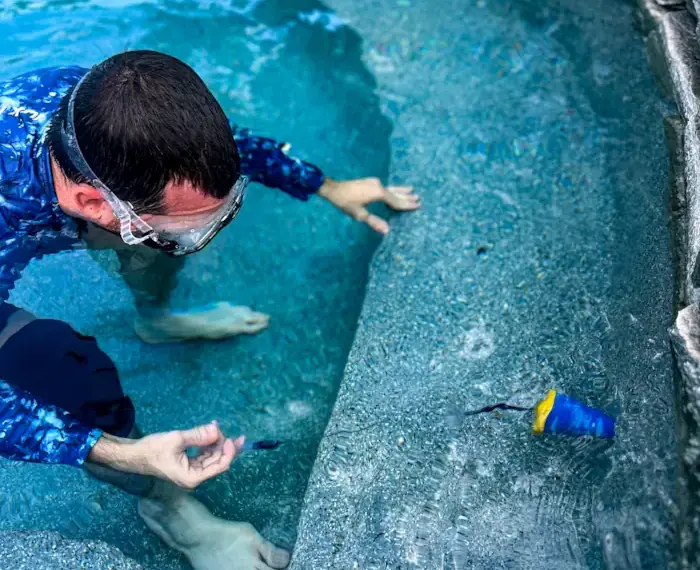Owning a swimming pool is a luxury that comes with its own set of responsibilities—one of which is addressing leaks. Even a minor leak can lead to higher water bills, damage to surrounding structures, and chemical imbalances in your pool. When you suspect a leak, the first question that likely comes to mind is: Should I call a professional or try to detect and fix it myself?
In this article, we’ll break down the of pool leak detection services los angeles to help you decide which approach best fits your needs.
Understanding Pool Leaks
Before diving into your options, it’s essential to understand what a pool leak entails. Not all water loss is due to leaks—some amount of evaporation is normal. A leak, however, is typically caused by issues in the pool’s structure, plumbing, or equipment. These can occur in:
- Pool liners
- Skimmers
- Main drains
- Return lines
- Pool tiles or shells
Detecting the source of the leak can be tricky, especially when it’s not visible to the naked eye.
DIY Pool Leak Detection
Pros:
1. Cost-Effective
DIY methods are usually less expensive. With a few tools and some patience, you can save on the cost of professional services.
2. Immediate Action
If you suspect a leak, you can begin investigating right away without waiting for an appointment or service schedule.
3. Educational Experience
Trying to find and fix the leak yourself can be a valuable learning experience. You’ll better understand your pool system and may become more adept at handling future issues.
Cons:
1. Limited Accuracy
DIY methods can help identify the presence of a leak but might not pinpoint the exact location. If the leak is in underground plumbing or behind pool walls, it’s difficult to diagnose without professional equipment.
2. Time-Consuming
Leak detection is not always straightforward. You could spend hours testing, observing, and still come up short.
3. Potential for More Damage
Misidentifying the problem or using the wrong repair methods could exacerbate the issue, leading to more expensive fixes down the line.
Popular DIY Leak Detection Methods:
1. The Bucket Test
Place a bucket filled with water on the pool step and mark the water levels inside and outside the bucket. After 24 hours, compare the two. If the pool water level has dropped more than the bucket’s, you likely have a leak.
2. Dye Test
With the pump off, squirt dye near suspected leak areas like skimmers, return jets, or pool lights. If there’s a leak, the dye will be drawn toward it.
3. Visual Inspection
Sometimes leaks are visible as cracks, wet spots around the pool, or loose tiles.
Professional Pool Leak Detection
Pros:
1. Precision and Expertise
Professionals use specialized tools like pressure testing, acoustic listening devices, and thermal imaging to locate leaks with pinpoint accuracy—even in hidden areas.
2. Comprehensive Service
Not only do they detect leaks, but many professionals can also fix them on the spot, saving you from hiring multiple services.
3. Saves Time
Instead of spending hours or days troubleshooting, a technician can usually diagnose the problem within a couple of hours.
4. Guaranteed Work
Most professionals offer a warranty or guarantee on their work, giving you peace of mind.
Cons:
1. Higher Cost
Hiring a professional can cost anywhere from $150 to $500 or more, depending on the complexity of the issue and your location.
2. Scheduling
You might have to wait a few days for an appointment, which could delay your pool usage.
Which Option Is Right for You?
Go DIY If:
- You suspect a minor leak and want to rule out evaporation.
- You’re comfortable with basic pool maintenance and troubleshooting.
- You’re looking to save money and have time to spare.
Call a Professional If:
- Your DIY efforts haven’t pinpointed the problem.
- You notice structural damage, wet spots around the pool, or mold.
- Water loss is significant and consistent.
- The suspected leak is in underground plumbing or equipment.
A Hybrid Approach
In some cases, the best option is a combination of both approaches. Start with DIY methods to confirm whether or not a leak exists. If you’re unable to identify or fix it, then call in the pros. This way, you avoid spending unnecessarily on a false alarm while ensuring the issue gets properly resolved if it’s serious.
Preventing Future Leaks
No matter which route you take, prevention is key. Here are some tips to keep your Pool leak repair Los Angeles-free:
- Regular inspections: Check your pool shell, tiles, and equipment periodically.
- Maintain water chemistry: Imbalanced water can erode pool surfaces and seals.
- Proper winterization: Freezing temperatures can crack pipes and fittings if not properly closed for the season.
- Prompt repairs: Address small cracks or issues before they escalate.
Final Thoughts
Pool leaks can be frustrating, but you don’t have to let them drain your time, energy, or wallet. Choosing between professional and DIY pool leak detection depends largely on the severity of the problem, your budget, and how comfortable you are with pool maintenance.
For simple checks, DIY methods are often sufficient. But when it comes to more complicated leaks—especially those affecting plumbing or structural integrity—it’s worth investing in a professional to get the job done right the first time.
So, next time your pool’s water level starts mysteriously dropping, you’ll know exactly how to approach the problem.





